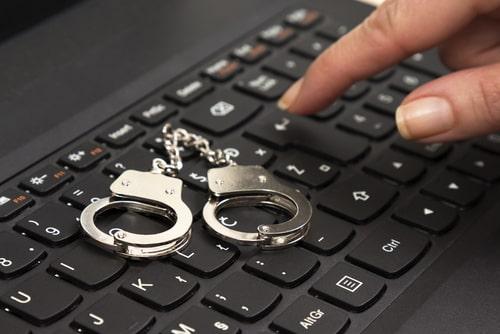What Types of Internet Crimes Can Lead to Federal Fraud Charges?
 In the 21st century, most people use computers, electronic devices, and the internet on a daily basis for multiple types of personal and professional purposes. There are many ways someone’s personal or financial information may be exposed to others online, and the illegal access or misuse of this information could potentially lead to fraud charges. There are multiple offenses that are considered internet crimes, and those who have been accused of this type of activity will need to understand when an offense could lead to federal criminal charges, which may result in more serious penalties.
In the 21st century, most people use computers, electronic devices, and the internet on a daily basis for multiple types of personal and professional purposes. There are many ways someone’s personal or financial information may be exposed to others online, and the illegal access or misuse of this information could potentially lead to fraud charges. There are multiple offenses that are considered internet crimes, and those who have been accused of this type of activity will need to understand when an offense could lead to federal criminal charges, which may result in more serious penalties.
Federal Computer Fraud Offenses
Fraud may be charged as a state-level offense based on the laws in the state where the alleged offender or the person who was the alleged victim of fraud lived. However, federal charges for computer or internet crimes may apply if a person is accused of violating federal laws or if an alleged offense affected people in multiple states or countries or involved interstate or international commerce. Some cybercrimes that could potentially lead to federal fraud charges include:
-
Illegal access - “Hacking” into a computer system by obtaining access without authorization could result in fraud charges based on how the information that was accessed is used. For example, a person may face federal charges if they are accused of breaking into a company’s records and selling information about its customers to others.
-
Unauthorized transfers of funds - In many cases, internet fraud involves the misuse of payment systems or other methods in which funds are illegally transferred from one account to another. These offenses may include bank fraud or credit card fraud.
-
Identity theft - This offense involves using someone else’s personal information for unauthorized purposes, such as to open a credit card account or obtain a loan. Federal identity theft charges will often involve schemes that affected people in multiple states.
-
Ransomware - Some hackers may attempt to extort money from a person or company by locking them out of certain computer systems or threatening to destroy sensitive information. These actions can lead to federal charges if they affected government computers or other types of systems that may impact large numbers of people, such as the electrical infrastructure in a state or region of the country.
Contact a Collin County Computer Crimes Defense Attorney
If you have been accused of committing internet fraud or other cybercrimes, you will need to have an experienced attorney on your side who can help you determine your best options for defense. At The Crowder Law Firm, P.C., we have represented clients in many different types of state and federal cases involving computer and internet crimes. In addition to addressing accusations of fraud, we can assist with cases involving offenses related to child pornography or other crimes against children. To get legal help with your case, contact our Dallas internet fraud defense lawyer at 214-544-0061 and schedule your free consultation today.
Sources:
https://www.fbi.gov/scams-and-safety/common-scams-and-crimes/internet-fraud
https://www.justice.gov/sites/default/files/criminal-ccips/legacy/2015/01/14/ccmanual.pdf

















